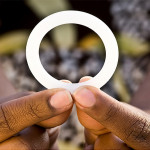In a major trial of an anti-HIV vaginal microbicide gel containing the antiretroviral Viread (tenofovir disoproxil fumarate), women were much less protected against the virus if they had a less healthy dominant bacterial population in their vagina (vaginal microbiome). Researchers analyzed vaginal samples from 688 South African women in the study and found that 59 percent had a dominant population of healthier bacteria, while 41 percent had a dominant population of less healthy bacteria, ones that are linked to an inflammatory condition known as bacterial vaginosis. The microbicide lowered HIV risk by a promising 61 percent among those with a healthier vaginal microbiome, but those with a less healthy vaginal microbiome were protected at a rate of just 18 percent. The scientists believe that the less healthy microbiome likely caused the HIV-fighting Viread to break down too quickly.


Istock






Comments
Comments